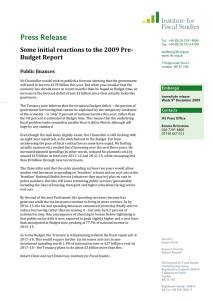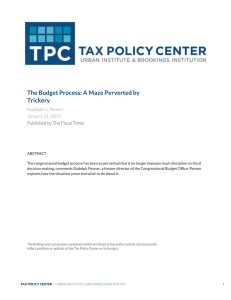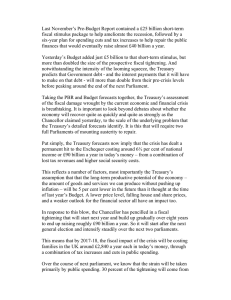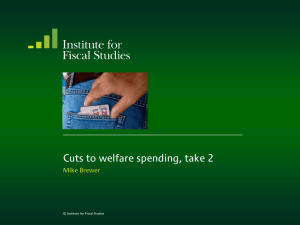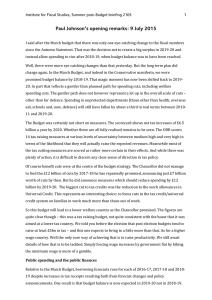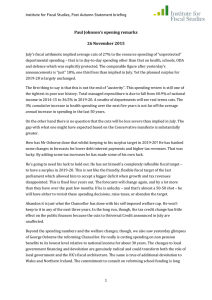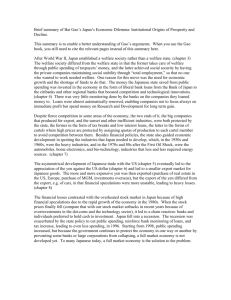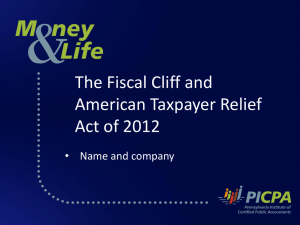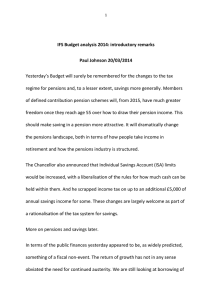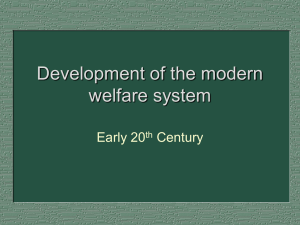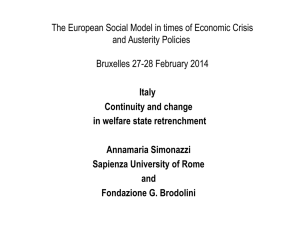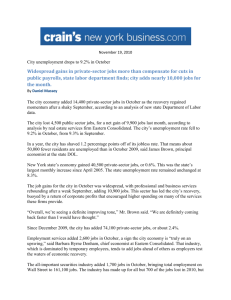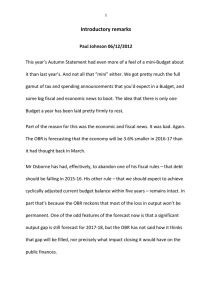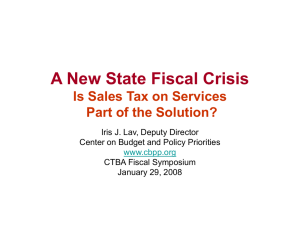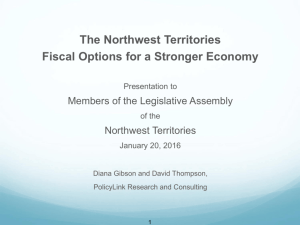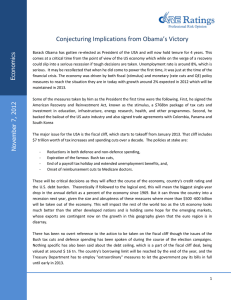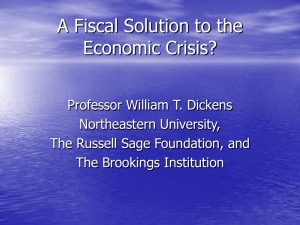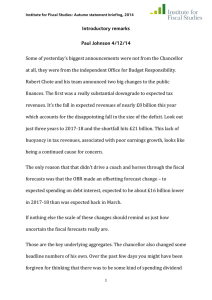Andrew Hood
advertisement
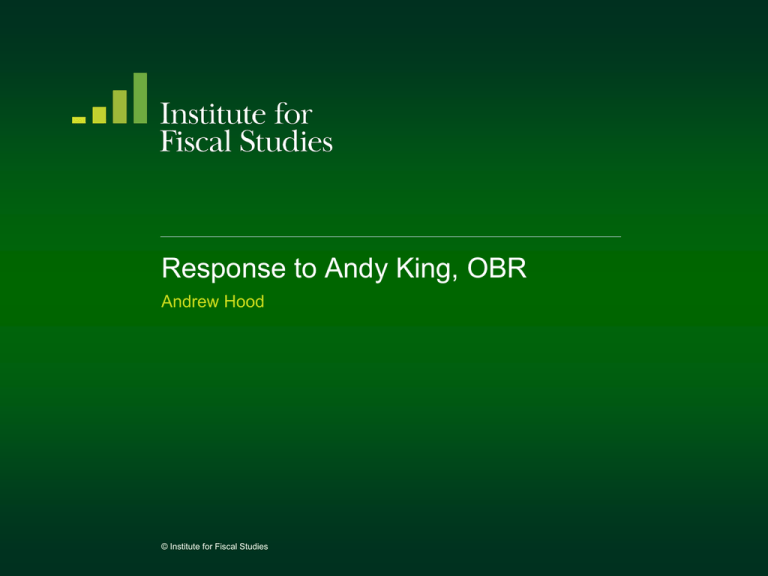
Response to Andy King, OBR Andrew Hood © Institute for Fiscal Studies Further cuts to welfare spending? • Current government has announced cuts intended to reduce welfare spending by £19bn a year relative to no policy change – although not all have been fully implemented/saved what was hoped • £21bn of tax rises/further welfare cuts needed to keep to borrowing plans without accelerating departmental cuts – could of course choose to borrow more • Would pensioners be broadly protected again? – in 2010–11, 37p in every £ of welfare spending on state pensions, another 15p on other pensioner benefits – by 2015–16, 42p in every £ of welfare spending on state pensions, another 14p on other pensioner benefits © Institute for Fiscal Studies Suggested cuts • Mr Osborne has suggested a future Conservative government would look to reduce welfare spending by a further £12bn a year: – Freeze most working-age benefits for two years (about £2½ bn) – Lower household benefit cap to £23,000 (£200m) – Removing housing benefit for some under-22s (£250m-400m) – Removing tax credits from migrants for the first four years • Labour party have also suggested a number of future cuts... – 2 years of 1% nominal increases in child benefit (£400m) – Removing winter fuel payment from higher-rate taxpayers (£100m) – Further restrictions on benefit eligibility of migrants • and a giveaway... – Reverse “bedroom tax”/ “spare room subsidy” (-£400m) © Institute for Fiscal Studies Universal credit • Has the potential to deliver two major benefits 1. Simplicity and increased take-up – Could have significant impact on child poverty – Eg. if anyone who takes up a legacy benefit takes up UC, then UC reduces relative child poverty by 400,000 in 2020 2. Reduce the number of people facing the weakest work incentives – But work allowances have been pre-emptively cut three times – Now 6% lower in real terms than when first finalised © Institute for Fiscal Studies
